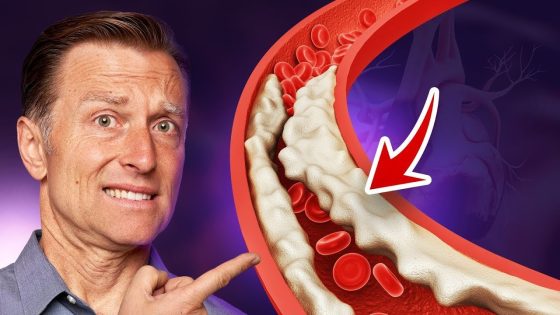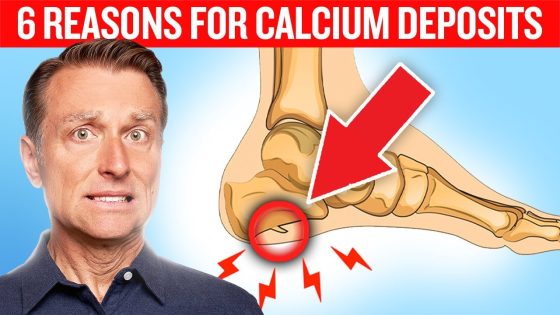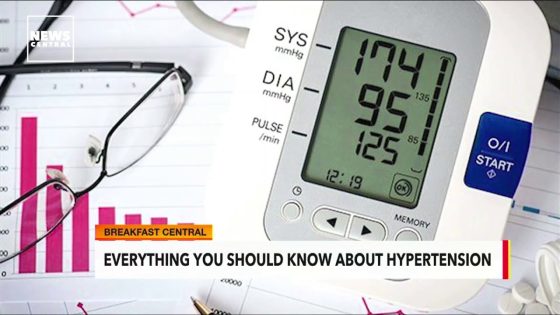Evidence suggests magnesium may promote a healthy heart. Find out why!
DATA:
https://www.ahajournals.org/doi/full/10.1161/HYPERTENSIONAHA.116.07664
https://www.frontiersin.org/articles/10.3389/fphar.2011.00024
https://www.sciencedirect.com/science/article/pii/S221451411500121X
https://www.ncbi.nlm.nih.gov/pmc/articles/PMC7649274/
00 Introduction: The real reason we need magnesium
2:15 Potential effects of low magnesium
2:57 Magnesium sources
4:06 Best and worst magnesium supplements
6:05 Check out my video on calcium!
In this video, we’re going to talk about the real reason we need magnesium.
These are some of the most commonly known benefits of magnesium:
1. Leg cramps
2. Relaxation & calmness
3. Sleep
4. Inflammation
5. Blood sugar
6. Electrolyte
7. Bone health
8. Energy (ATP)
However, the real reason magnesium is essential is that it promotes a healthy heart and arteries.
The FDA allows the following health claim:
“Consuming diets with adequate magnesium may reduce the risk of high blood pressure. However, the FDA has concluded that the evidence is inconsistent and inconclusive.”
Magnesium has a significant effect on the cardiovascular system. However, it’s also important that you consume a healthy diet. Taking magnesium won’t make much of a difference if you’re eating an unhealthy, carb-loaded diet.
Magnesium deficiency can have some potentially dangerous side effects, including:
• Apathy
• Depression
• Convulsions
• Cramps
• Weakness
66% of the population does not meet the minimum requirement for magnesium. Magnesium levels have dropped significantly over the last 50 years.
The best sources of magnesium are vegetables. The average person only consumes 1.5 cups of vegetables each day—but you need 7 to 10 cups of vegetables daily for optimal health.
Other sources of magnesium include:
• Grains (avoid!)
• Green vegetables
• Nuts and seeds
• Seafood
• Meats
• Berries
Avoid these forms of magnesium supplements:
• Oxide
• Hydroxide
• Carbonate
• Sulfate
Stick with these forms of magnesium:
• Citrate (may act as a laxative)
• Threonate
• Bisglycinate
• Orotate
• Taurate
• Malate
Dr. Eric Berg DC Bio:
Dr. Berg, age 57, is a chiropractor who specializes in Healthy Ketosis & Intermittent Fasting. He is the author of the best-selling book The Healthy Keto Plan, and is the Director of Dr. Berg Nutritionals. He no longer practices, but focuses on health education through social media.
Facebook: https://bit.ly/FB-DrBerg
Instagram: https://bit.ly/IG-DrBerg
Anchor: https://bit.ly/Anchor-DrBerg
TikTok: https://bit.ly/TikTok-DrBerg
Disclaimer:
Dr. Eric Berg received his Doctor of Chiropractic degree from Palmer College of Chiropractic in 1988. His use of “doctor” or “Dr.” in relation to himself solely refers to that degree. Dr. Berg is a licensed chiropractor in Virginia, California, and Louisiana, but he no longer practices chiropractic in any state and does not see patients so he can focus on educating people as a full time activity, yet he maintains an active license. This video is for general informational purposes only. It should not be used to self-diagnose and it is not a substitute for a medical exam, cure, treatment, diagnosis, and prescription or recommendation. It does not create a doctor-patient relationship between Dr. Berg and you. You should not make any change in your health regimen or diet before first consulting a physician and obtaining a medical exam, diagnosis, and recommendation. Always seek the advice of a physician or other qualified health provider with any questions you may have regarding a medical condition.
#keto #ketodiet #weightloss #ketolifestyle
Thanks for watching. I hope this helped explain the real reason we need magnesium. I’ll see you in the next video.















Acciqv
2 months agopurchase lipitor pill atorvastatin 80mg price order atorvastatin 80mg online
Hdlmwo
2 months agooral cipro 1000mg – augmentin us augmentin for sale online
Ztqtkm
2 months agoorder cipro pills – generic augmentin 625mg augmentin 375mg pill
Aorjwh
2 months agogeneric ciplox – buy ciprofloxacin 500mg erythromycin 500mg pill
Ppcaag
2 months agometronidazole price – brand cefaclor 250mg purchase azithromycin without prescription
Abydox
1 month agoivermectin 12mg without a doctor prescription – order sumycin 500mg pills buy sumycin 500mg pill
Avrtzi
1 month agoorder valacyclovir 500mg generic – diltiazem 180mg pill acyclovir 400mg without prescription
Dahuoi
1 month agobuy generic acillin for sale buy penicillin without prescription where to buy amoxil without a prescription
Nsdebd
1 month agoorder generic flagyl – oral azithromycin azithromycin 500mg price
Nmmpat
1 month agolasix for sale – tacrolimus ca captopril tablet
Be the first to comment